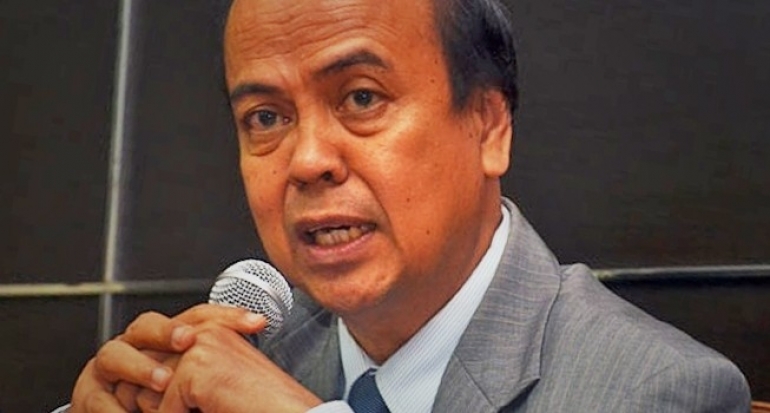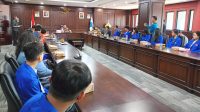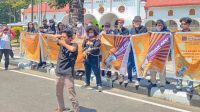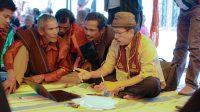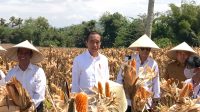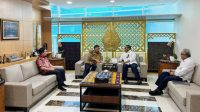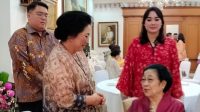oleh: Hafid Abbas*
It was a historic moment indeed, prior to the G20 Summit on 14-15 Nov., the G20 Education Ministers met in Bali on 1 Sept. under the Indonesian G20 Presidency in the mid of war between Russia and Ukraine, and at a new normal era of postCovid-19 pandemic. The meeting was attended by G20 members, invited countries and international organizations in a hybrid manner and was chaired by the Indonesian Minister of Education, Culture, Research and Technology.
During the meeting, Ministers discussed the G20 education agenda under Indonesia’s Presidency namely: universal quality education; digital technology in education; solidarity and partnership in education; and, future of work. The Ministers also welcomed the Report and Compendium on education strategies in 26 countries, detailing more than 150 education programs and best practices.
To promote such agenda of cooperation and partnership, it is a great lesson learned from Arizona State University (ASU)-Cintana’s breakthrough to promote university to university alliance globally. In the G20 Agenda, they call such cooperation as “gotong royong,”aiming to strengthen G20 shared commitments and to promote investments for inclusive education and training at all levels, including with multilateral and international institutions.
Gotong royong is an Indonesian term that describes joint activities to achieve an expected result. It derives from the words gotong (work) and royong (together). ASU-Cintana’s alliance with various selected reputable universities across:Indonesia, Turkey, the Philippines, Egypt, Montenegro, Ukraine, Kazakhstan, Mexico, Costa Rica, Colombia, Ecuador, India and other G20 countries have genuinely proved the spirit of such principle.
G20 Member States and partner countries have demonstrated a varied understanding of the meaning of partnership and solidarity in education, based on the principles of SDG 4: universality, meaning that the agenda must be for all countries; inclusion, meaning that no one should be left behind; and linkages, meaning the need to collaborate across sectors. They have also showcased examples of partnership and solidarity at local, national and international levels. Many of the good examples are characterized by an awareness of the close links that need to be built between students, schools and universities and their communities. They also provide evidence that good practice requires the engagement of as many stakeholders as possible to prevent the adoption of top-down solutions.
Countries are increasingly willing to learn from others through strong cross-national networks.
Under such G20 circumstances, these are a few examples on how Cintana addresses G20 Agenda on Education.
First example, for the first time, on May 31, 2022, Universitas Esa Unggul (UEU), one of Indonesia’s 4593 universities, formally announced a long-term strategic alliance with ASU- Cintana to path its position to be a world class university.
UEU is powered by ASU as the most innovative university in the US. In the last seven years, ASU has outpaced MIT and Stanford (US News and World Report 2016–2022) and is ranked among the top ten universities in the world for research and teaching (Times Higher Education, 2018). Currently, UEU has access to all the advantages possessed by ASU, such as university governance expertise, digital learning technology, intellectual property rights, services, innovation, joint research, curriculum, mobility of students and lecturers, and so on.
Similarly, Cintana’s support, led by Douglas Becker and his team, could hopefully, capacitate UEU as a university at the 14th highest rank in Indonesia (Webometric 2021) to a world class university. Laureate Education, which previously had Beeker as its founder and CEO, has brought Laureate to become one of the world’s largest university networks, with over one million students studying at more than 200 campuses in 28 countries. With ASU-Cintana, the network is expected to grow even bigger than Laureate in the near future.
Second, the Istanbul Bilgi University (IBU)-ASU-Cintana alliance which I visited last Nov. 2nd, 2022, has shown the spirit of G20 agenda.This university is rated 4 stars by QS and has appeared seven years in a row in the QS Emerging Europe and Central Asia University Ranking. Bilgi is a reference point for internationality in Turkey, with over 550 international academic agreements and international students from 100 different countries comprising 10% of the total student body.
IBU was a part of Laureate Education network over two decades ago. President Bill Clinton, Prime Minister Tony Blair, and other head of states had visited this university and made a lecture to their students, faculty members and academe community.
Third,UEU in Indonesia and IBU in Turkey, Universidad Autónoma de Guadalajara (UAG) in Mexico, and the NorthCap University (NCU) of India as G20 members and other ASU-Cintana global networks could be new centers of excellence on medical and health sciences internationally. ASU-Cintana has extensive experience in pioneering, maintaining, and managing medical education in diverse parts of the world. While still at Laureate, the ASU-Cintana team, led by Harvard University Professor Francisco Gutierrez, innovatively established Laureate as the world’s largest and leading network of medical and health science professional education, with over 250,000 students spread across 40 degree programs and expertise or specialization. These are distributed throughout 18 countries, 37 universities, and 158 campuses.
UAG as the top best medical school in Mexico, for example, with its alliance with ASU-Cintanais now moving to achieve its vision of being recognized as one of the best universities in Latin America, and in the world.
Finally,with the spirit of Gotong Royong on education in G20, in every collaboration, ASU-Cintana’s alliances, always, encourages its internal strengths and advantages with the support of all elements of its academia community. ASU-Cintana, as always share their best practices and innovative models to their alliances which could create social and economic benefits at any country.This is really the manifestation of: cross-country initiatives to generate shared purposes and common solutions to educational challenges, and; new forms of regional and international cooperation, especially South–South and triangular cooperation; enhanced accountability and coordinated advocacy towards meeting educational commitments and achieving educational improvements.
Hopully, the ASU-Cintana model could be an insightful example to G20 members to promote a cross national cooperation and partnership on education within the spirit of Gotong Royongwhich represents ‘notions of moral obligation and generalized reciprocity’, to recover together and to recover stronger nationally, regionally and globally. ***
*) International Consultant at SEAMEO RETRAC, Ho Chi Minh, 2014

